Seeing one of the world’s rarest birds is not something you’d usually think an easy task. Species with a world population in the hundreds tend to be endangered or critically endangered and confined to remote and difficult to reach locations. And while Takahe (Porphyrio hochstetteri) are both endangered and generally confined to remote and difficult to reach areas, there are some in more accessible locations. This became particularly true when a pair, Puffin and T2, where moved to the Karori Wildlife Sanctuary, or Zealandia, in Wellington. The pair had previously been resident on Mana Island, which is near Wellington and an important refuge for endangered species (which I hope to talk about in the future), but having not bred since 2004, it was decided that they would be retired and Mana used for another pair.
Unlike the habituated Takahe at Kapiti or Tiritiri Matangi these two were initially unused to large numbers of visitors, and were tricky to spot at first. But when I dropped by last Friday in an effort to clear my head they were feeding on the grass and unconcerned by my presence as I sat quietly (the fact that for half an hour no one else came by didn’t hurt!. A very pleasant way to spend some time with nature.
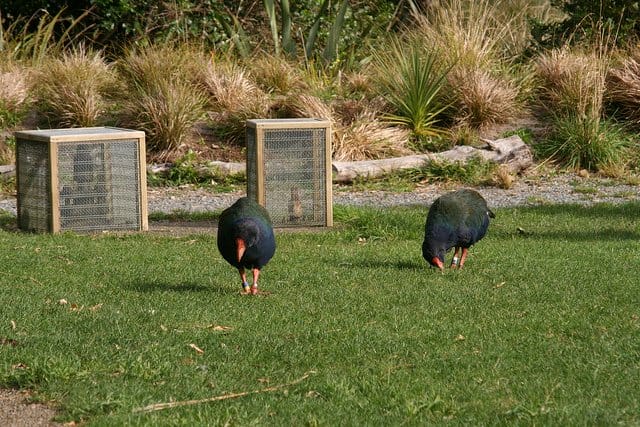
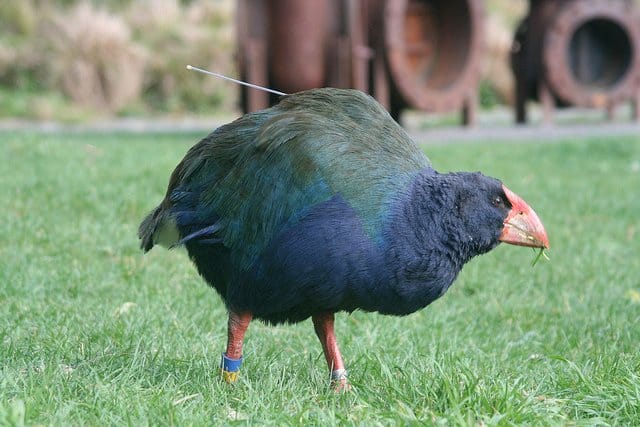 You can see the radiotracking antennae clearly in this shot. You can also see the white on the rump they share with their genus.
You can see the radiotracking antennae clearly in this shot. You can also see the white on the rump they share with their genus.
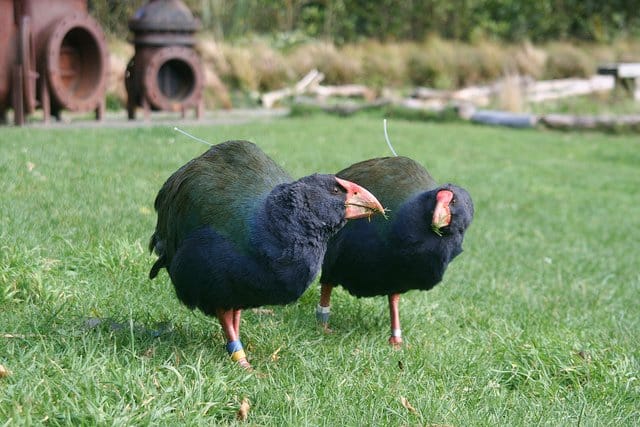 They tended to stay close to each other.
They tended to stay close to each other.
 In cover now, it is easy to see how you could lose sight of these guys if they hide their bills.
In cover now, it is easy to see how you could lose sight of these guys if they hide their bills.
…
If you liked this post and want to see more great images of birds make sure to check out 10,000 Clicks, our big (and growing) page of galleries here at 10,000 Birds.








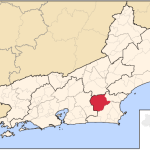
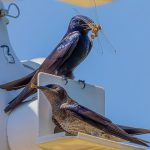
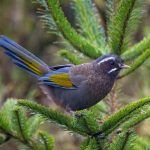
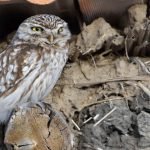
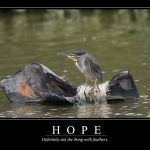
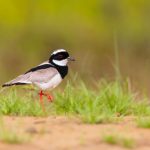
WOW-thanks for sharing-hope you cleared your head! 🙂
Sweet. Prehistoric gallinules.
Wonderful images. Karori is a must place to visit. Still recovering from seeing the Saddlebacks and the Hehes!
Great photos! I especially like the second one of them together – they’re such a cute old couple and so special. I’m glad you enjoyed your visit and hope it helped clear your head 🙂
@Seagullsteve: exactly! Porphyrio tyrannosaurus. That’s it.
If I were six inches tall I would run for my life if I saw a Takahe. Either that or I would try to lasso and ride one. That would be pretty badass.